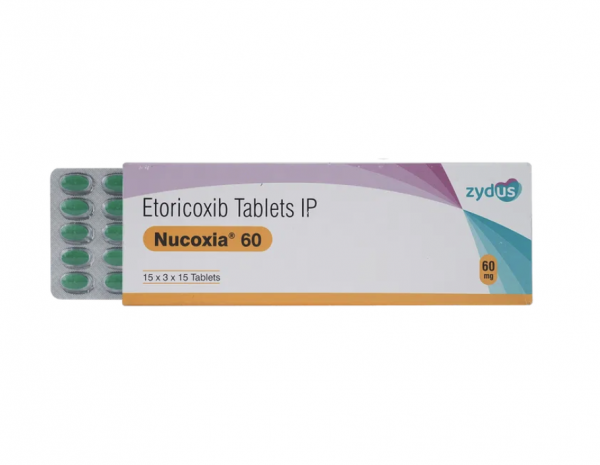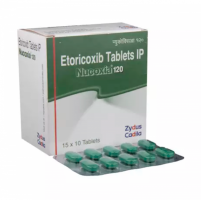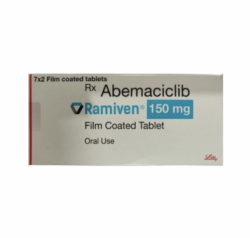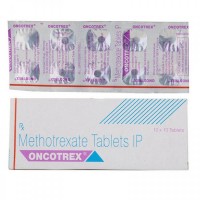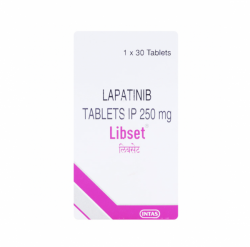Arcoxia is used for the following:rn* acute and chronic treatment of the signs and symptoms of osteoarthritis and rheumatoid arthritisrn* management of ankylosing spondylitisrn* relief of chronic musculoskeletal painrn* relief of acute painrn* to treat acute gouty arthritisrnYour doctor will prescribe Arcoxia for you only after you have used other medicines for your condition and they have not been suitable for you.rnYour doctor will want discuss your treatment with Arcoxia from time to time. It is important that you use the lowest dose that controls your pain and you should not take Arcoxia for longer than necessary. This is because the risk of heart attacks and strokes might increase after prolonged treatment, especially with high doses.rnOsteoarthritisrnOsteoarthritis is a joint disease. It results from the gradual breakdown of the cartilage that covers the joints and cushions the ends of bones.rnSymptoms of osteoarthritis include pain, tenderness, stiffness of one or more joints, and physical disability. The hips and knees are the most commonly affected joints, but other joints such as those of the hands and spine may also be affected.rnOsteoarthritis is more common in women than in men. Many factors can lead to the development of osteoarthritis including obesity and joint injury (eg. from sport).rnRheumatoid ArthritisrnRheumatoid arthritis is a chronic disease that causes pain, stiffness, swelling and loss of function in the joints and inflammation in other body organs.rnAnkylosing SpondylitisrnAnkylosing spondylitis is an inflammatory disease of the spine and large joints.rnGout is a disorder characterised by sudden, recurring attacks of pain and inflammation in one or more joints.
The health and medical information provided here is for general purposes only and is not a substitute for the expertise and judgment of your physician, or other health care professional. It should not be understood to indicate that the use of this medicine is safe, appropriate or effective for you. Always consult your health care professional before using this, or any other, drug.
Do not take Arcoxia if:rnyou have an allergy to Arcoxia or any of the ingredients listed at the end of this leafletrnthe packaging is torn or shows signs of tamperingrnthe expiry date on the pack has passed.rnIf you take this medicine after the expiry date has passed, it may not work.rnYou have had heart failure, a heart attack, bypass surgery, chest pain (angina), narrow or blocked arteries of the extremities (peripheral arterial disease), a stroke or mini stroke (TIA or transient ischaemic attack).rnYou have high blood pressure that is not well controlled on blood pressure medication.rnYou are having major surgery and have conditions which increase your risk of coronary artery disease or atherosclerosis such as high blood pressure, diabetes, high cholesterol or smoking.rnYou are having major surgery on you heart or arteries.rnIf you are not sure whether you should start taking Arcoxia, talk to your doctor.rnArcoxia has not been adequately studied in children. Therefore, Arcoxia should not be given to children.rnArcoxia works equally well in older and younger adult patients. Adverse experiences may occur at a higher incidence in older patients compared to younger patients. If you are elderly (ie over 65 years of age), your doctor will want to appropriately keep a check on you. No dosage adjustment is necessary for older patients.
Tell your doctor or pharmacist as soon as possible if you do not feel well while you are taking Arcoxia.rnArcoxia helps most people with osteoarthritis, rheumatoid arthritis, menstrual pain, gout or other types of pain, but it may have unwanted adverse effects in a few people. All medicines can have adverse effects. Sometimes they are serious, most of the time they are not. You may need medical treatment if you get some of the adverse effects.rnAsk your doctor or pharmacist to answer any questions you may have.rnTell your doctor if you notice or have any of the following and they worry you:>rnfeeling sick (nausea), vomitingrn, heartburn, indigestion, uncomfortable feeling or pain in the stomachrn, diarrhoearn, swelling of the legs, ankles or feetrn, high blood pressurern, dizzinessrn, headachernAdditionally, the following have been reported:rnallergic reactions including rash, itching and hivesrn, severe skin reactions, which may occur without warningrn, taste alterationrn, wheezingrn, insomniarn, anxietyrn, drowsinessrn, mouth ulcersrn, diarrhoearn, severe increase in blood pressurern, confusionrn, hallucinationsrn, platelets decreasedrnThese are usually the mild adverse effects of Arcoxia.rnIf any of the following happen, stop taking Arcoxia and tell your doctor immediately or go to Accident and Emergency at your nearest hospital:rnswelling of the face, lips, tongue or throat which may cause difficulty in swallowing or breathing (hypersensitivity reactions, anaphylactic/anaphylactoid reactions including shock)rnabnormal rhythm of the heart (atrial fibrillation)rnheart failurernpalpitationsrnserious kidney problemsrnserious liver problemsrnstomach painrnstomach ulcers that may become serious and may bleed, and may occur at any time during use and without warningrnOther adverse effects not listed above may also occur in some patients. Tell your doctor if you notice any other effects.rnDo not be alarmed by this list of possible adverse effects. You may not experience any of them.
Take Arcoxia only when prescribed by your doctor.rnFor osteoarthritis, the recommended dose is 60 mg once a day.rnFor rheumatoid arthritis the recommended dose is 90 mg once a day.rnFor ankylosing spondylitis the recommended dose is 90 mg once a day.rnFor the relief of gout attacks the recommended dose is 120 mg once a day, which should only be used for the acute painful period.rnFor the relief of chronic musculoskeletal pain the recommended dose is 60 mg once a day.rnDoses greater than those recommended for each condition have either not demonstrated additional efficacy or have not been studied. Therefore, the daily doses stated above for each condition should not be exceeded.rnIf you have mild liver disease, you should not take more than 60 mg a day. If you have moderate liver disease, you should not take more than 60 mg every other day.rnFollow all directions given to you by your doctor carefully. They may differ from the information contained in this leaflet.rnIf you do not understand the instructions on the box, ask your doctor or pharmacist for help.rnArcoxia comes as tablets.rnWhen taking the tablets, swallow them with a glass of water. Do not halve the tablet.rnTake your Arcoxia at about the same time each day.rnTaking Arcoxia at the same time each day will have the best effect. It will also help you remember when to take the dose.rnIt does not matter if you take Arcoxia before or after food.rnDo not use Arcoxia for longer than your doctor says.rnYour doctor will want to discuss your treatment from time to time. It is important that you use the lowest dose that controls your pain and you should not take Arcoxia for longer than necessary. This is because the risk of heart attacks and strokes might increase after prolonged treatment, especially with high doses.rnDepending on your condition, you may need to take Arcoxia for a few days or for a longer period.rnFor osteoarthritis and rheumatoid arthritis Arcoxia helps relieve your symptoms but it does not cure it. Continue taking Arcoxia for as long as your doctor prescribes.rnFor the relief of gout attacks or other types of pain, Arcoxia is usually only needed for a few days.rnIf you are not sure how long to take Arcoxia, talk to your doctor.rnIf it is almost time for your next dose, skip the dose you missed and take your next dose when you are meant to. Otherwise, take it as soon as you remember, and then go back to taking your tablet(s) as you would normally.rnIf you are not sure whether to skip the dose, talk to your doctor or pharmacist.rnDo not take a double dose to make up for the dose that you missed.rnIf you have trouble remembering to take your tablets, ask your pharmacist for some hints.rnIf you take too much Arcoxia (overdose) immediately telephone your doctor or Poisons Centre or go to the emergency department at your nearest hospital, if you think that you or anyone else may have taken too much Arcoxia. Do this even if there are no signs of discomfort or poisoning.

